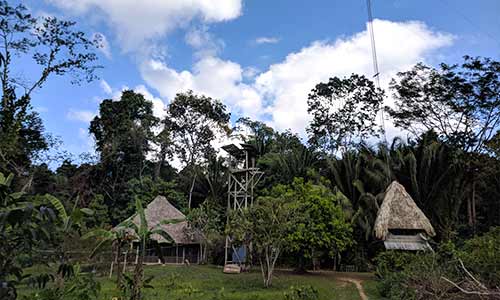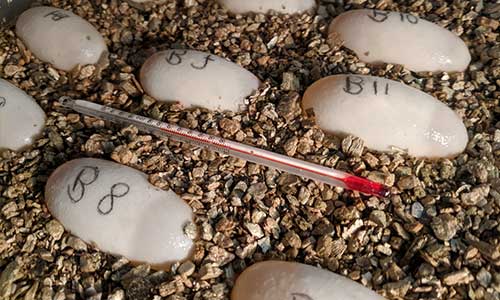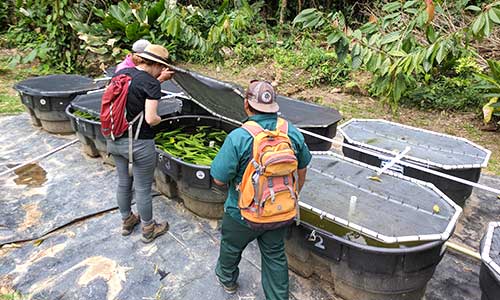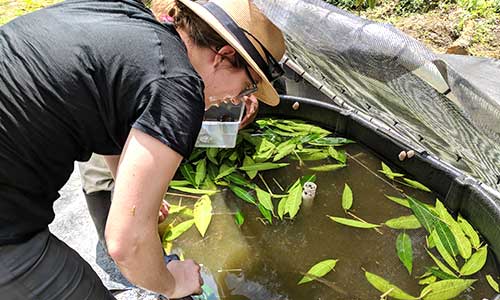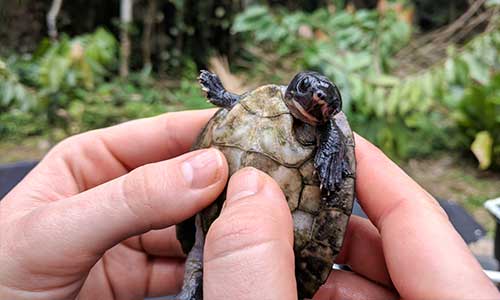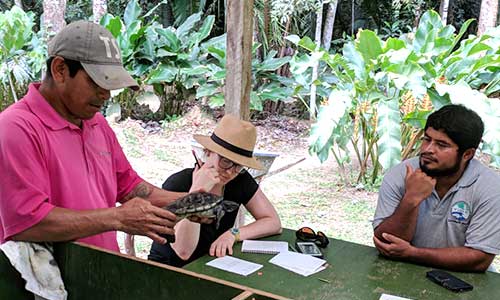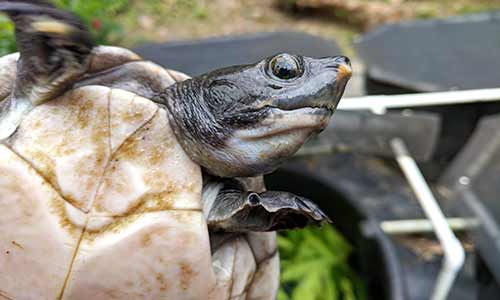-
BFREE Research Station, Belize
-
Hicatee eggs in incubation
-
Tanks set up to raise juvenile hicatee turtles born at the research station
-
ZNE's Emilie Wilder looks for hicatees in the Center's captive rearing tanks
-
Juvenile hicatee (Central American river turtle)
-
ZNE's Emilie Wilder (center) helps BFREE staff weigh and measure their turtles
-
Juvenile hicatee (Central American river turtle)
The critically endangered hicatee, or Central American river turtle (Dermatemys mawii), is among the world’s 25 most endangered turtle species. They are found in Belize, Guatemala and Mexico, but recent status assessments suggest that their numbers have plummeted. Overexploitation appears to be the primary cause for the decline of this species throughout their native range. Hicatees are a traditional food item in Central America, and despite laws protecting them, they are still being captured at unsustainable rates.
In an effort to bolster this diminishing species’ numbers, the Belize Foundation for Research and Environmental Education (BFREE) established the Hicatee Research and Conservation Center at their field station in Belize. To date, the center is the world’s only ex-situ captive breeding facility for this endangered species, and it has fostered a now rapidly growing population. By raising awareness and advocating for stricter protections, BFREE hopes to have hicatee designated the “National Reptile” of Belize.
Zoo New England has supported BFREE’s Hicatee Conservation Project since 2019. Our Field Conservation Department plays an active role in turtle conservation here in New England, and through this partnership, we’re now bringing that expertise and commitment to Belize. We support BFREE with expertise in turtle veterinary medicine and captive husbandry, as well as in establishing and monitoring turtle reintroduction and population augmentation programs in the field.
We also support BFREE's Fellows program, a two-year training opportunity for young Belizeans to participate in and learn about wildlife conservation, gain leadership and professional skills, and build partnerships between emerging Belizean leaders, BFREE, and its many conservation partners.

